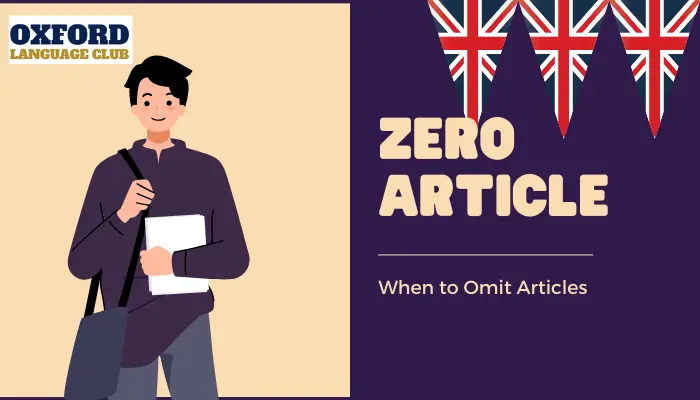Świetna strona, aby utrzymać moje umiejętności angielskiego aktualne do pracy i podróży. Naprawdę cieszę się z lekcji!
Maria C
 Argentyna
Argentyna


In English, articles ("a," "an," and "the") are commonly used to specify nouns. However, there are instances when no article is required, known as the "zero article." Understanding when to omit articles can enhance your fluency and accuracy in English.
General Rules for Zero Article:
1. Uncountable and Plural Nouns in General Statements:
When talking about things in general, we do not use articles with uncountable or plural nouns. For example:
2. Proper Nouns:
Proper nouns, including names of people, countries, cities, and languages, typically do not take an article. For example:
Meals, Transport, and Times:
When referring to meals, modes of transport, and times of the day in a general sense, we often omit articles. For example:
Abstract Nouns:
Abstract nouns, such as love, happiness, and freedom, do not require an article when used in a general sense. For example:
Exceptions and Special Cases:
While these guidelines generally apply, there are exceptions, particularly with geographical names and some idiomatic expressions. For instance, "the Netherlands" and "the United States" do use the definite article, despite being proper nouns.
Understanding the zero article is crucial for mastering English grammar. It helps convey the intended meaning accurately, especially in general or abstract contexts. By practicing these rules, you can improve your understanding and usage of articles in English.
July, 2024
Posted by Oxford Language Club
Sprawdź swój wynik - Wypróbuj nasz darmowy quiz z angielskiego + Odbierz darmowy bonus